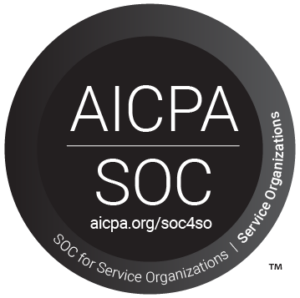Exploring the Role of Basis Teams in the RISE with SAP Program
“with RISE with SAP, you have SAP experts and our vast global partner network to help secure your success.”
At its core, RISE with SAP enables companies to optimize their IT infrastructure and systems for maximum performance. RISE is part of the push by almost all software companies to move to a SaaS model with the use of a cloud platform to support their software applications. For those SAP customers that can afford it, this is the final leg of their journey to total digital transformation.
A critical component of this transformation is the role of SAP global partners, like Basis teams, who provide ongoing support and guidance to ensure that the ERP continues to function smoothly. In this post, we will explore the responsibilities of Basis teams in RISE with SAP and how they can be leveraged by companies to manage their SAP environment while SAP manages the substrate.
With RISE, some of these duties are eliminated or modified. Since RISE comes in two flavors, private and public, it means that customers will have the option to be completely in the SAP Cloud or maintain a hybrid environment. The choice depends upon the business needs and preferences of each customer.
For those customers who choose to remain in a hybrid configuration, Basis teams are vital for the successful running of their operations. This team will be responsible for the seamless integration of existing data to the cloud and ongoing maintenance, as well as providing ongoing support should there be any issues with their system.
Although most of the management responsibilities may reside in SAP’s hands with RISE, it is still important that Basis teams are kept in the loop when it comes to changes or updates. This may include working with other departments, such as IT and support personnel, so that they can be informed of any issues and take proactive steps to address them.
RISE is a platform, not a complete solution
RISE with SAP is a comprehensive program designed to help businesses transform the way they operate. RISE is a hypervisor- or hyperscaler-based platform rather than a comprehensive software solution. Basis teams are responsible for providing ongoing support and guidance to fill the gaps where SAP services are not provided.
S/4HANA CPO AM Services delivered by SAP do NOT include:
- Incident Management
- Change Management (customization, enhancements, implementation of new functions or interfaces)
- Authorization and Role Management
- Interface Management or Interface Monitoring
- Business Process Monitoring
- Problem Management
- Support of customer-specific enhancements or custom code
- Onsite alignments and travel
RISE with SAP program is a comprehensive platform that is managed by SAP, but Basis teams are responsible for ensuring that RISE with SAP is utilized in an effective way by filling in where SAP support stops. Their role is more than just to provide guidance; they can also provide Incident Management, Change Management, Authorization & Role Management, Interface Management, Business Process Monitoring, Problem Management, and Support of Customer-specific Enhancements or Custom Code, etc..
Incident Management is an important part of any SAP installation as it allows Basis teams to identify and fix problems that occur during operation. When a business runs RISE with SAP, it needs to ensure that its IT infrastructure is running properly and efficiently at all times. Through incident management, Basis teams can monitor SAP’s performance and address potential issues before they become major problems. This can help reduce downtime and improve service levels for customers.
Change Management is also essential for ensuring that RISE with SAP is optimized for maximum performance. Changes made to SAP should always be tested thoroughly before being implemented on production systems so that the impact on performance can be measured accurately. By leveraging Change Management techniques such as regression testing and user acceptance testing (UAT), Basis teams can ensure that changes have been correctly implemented without negatively impacting system performance.
Authorization & Role Management plays an important role in helping businesses secure their SAP installations. Basis/Security teams are responsible for maintaining and assigning secure roles within SAP so that only authorized personnel can access certain sections or features of SAP while keeping unauthorized users out of sensitive areas. Additionally, through Authorization & Role management, Basis/Security teams can determine which user has access to what information to ensure data integrity across the entire system. They can also help with separation of duties requirements.
Interface Management or Interface Monitoring helps businesses monitor the communication between SAP and third-party systems or applications. Through proper interface management techniques such as log correlation analysis, Latency monitoring and throughput optimization analysis, Basis teams can detect any potential issues or discrepancies between SAP’s connectivity to external services or applications so that these problems can be fixed before causing any disruption in operations or customer service levels.
Business Process Monitoring is another important tool for ensuring maximum efficiency within an organization’s IT environment when using SAP. By utilizing Business Process Monitoring techniques such as transaction profiling and automated alerting systems, Basis teams can detect potential bottlenecks in processes so that these issues can be addressed before they become major obstacles in achieving business objectives.
Problem Management enables Basis teams to identify the root cause of operational problems within a company’s SAP landscape or IT Infrastructure (as it effects SAP systems) so that corrective action can be taken immediately instead of wasting time trying to troubleshoot complex issues through RISE resources with a less critical or tight SLA. This type of proactive problem resolution helps reduce downtime significantly while improving overall productivity level across the organization.






